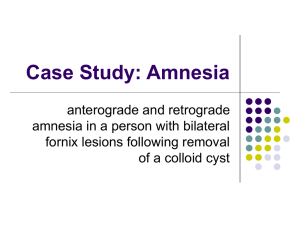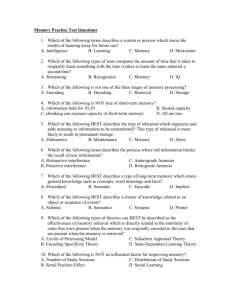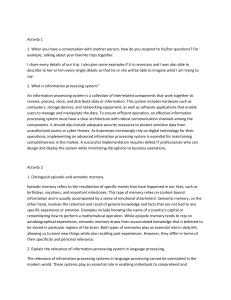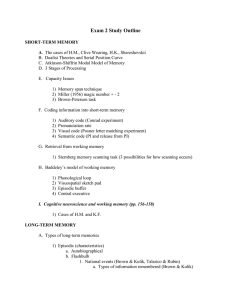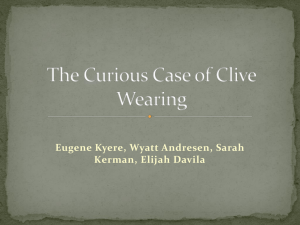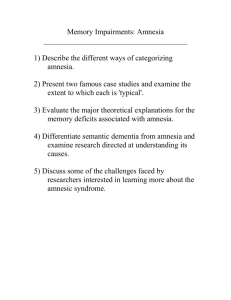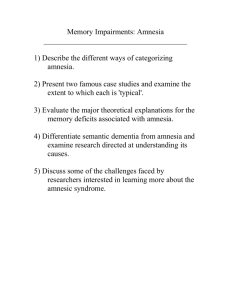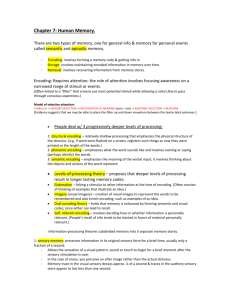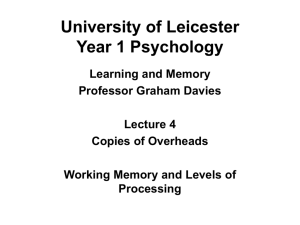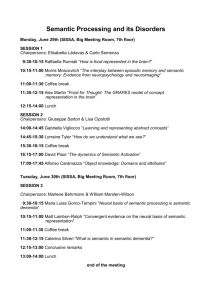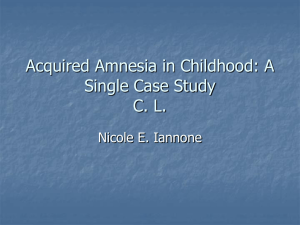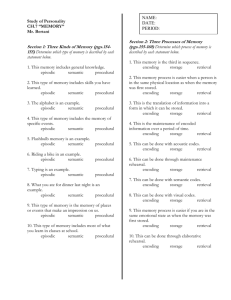Memory Disorders
advertisement
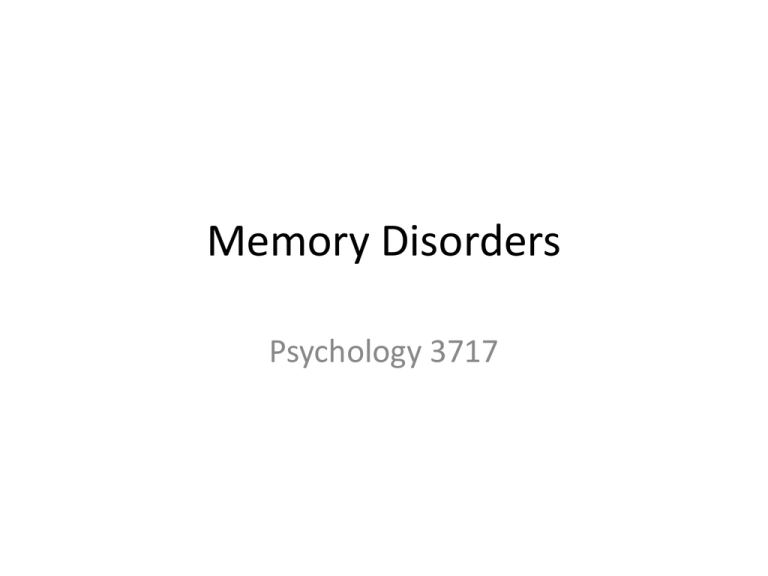
Memory Disorders Psychology 3717 Introduction • The strange case of Charles D’Sousa • Or is it Philip Cutajar? • Rare type of disorder • Some stuff clearly spared Introduction • Results with amnesiacs has lead to many discoveries about memory – Episodic vs. semantic memory – Procedural vs. declarative memory – Implicit vs. explicit memory – Phonological loop vs. visuo spatial sketchpad problems • • • • • Taxonomy Individual differences Interpretation Application Mostly comes down to a lack of control, which of course is inevitable Case studies • We pretty much have to rely on these • They are, thankfully, rare • Usually some sort of accident or a stroke Case SP • Stroke patient • Both Medial temporal lobes, left Hp and lots of surrounding area, but not the amygdala • Had trouble naming objects • Anterograde and retrograde amnesia • Similar to KC Clive Wearing • Case of encephalitis • Pervasive amnesia • Both semantic and episodic impairment • Temporal lobe dilation • Hp destroyed Performance Patterns • Retrograde amnesia – Losing past memories • Anterograde amnesia – No new memories • Spared function – Often implicit tasks, such as priming or ability to learn a new skill Typically spared • Working Memory • Semantic memory – Even KC could learn new stuff • Declarative information using Tulving’s method – Restrict errors Why? • Difficulties in interference, retrieval and encoding • Consolidation – Tends to come down to something to do with HP – Context or sending item off for processing or some such thing Semantic memory problems • What is a cat? • Temporal lobe problems • Oddly enough, episodic memory often intact in these rare cases Working Memory Problems • There are cases of people with intact phonological loops and visuo spatial sketchpads that are pretty much toast • And vice versa Alzheimer’s • More than half of all dementia is from AD • 2 times more women than men – Could be because women live longer though • dementia and brain stuff – Neurofibrillary tangles and neuritic plaques AD • MASSIVE cell death • In essence, you get like lesions everywhere • ‘cortical’ dementia, but you get these lesions, holes really, everywhere Neurotransmitters affected • • • • ACh is important in memory, especially in HP The ACh system is severely damaged in AD Indeed it is almost targeted Other systems too though Memory effects • Episodic effects • Eventually semantic effects • Retrieval cues don’t help – Information was not even encoded • Nondeclarative stuff, skills etc, are the last to go Treatment • Most drugs target the cholinergic system • This disease not only affects the victim, but also his/her family • NGF is promising • Treatments will come, but, reversal, I dunno • Respite care is key for the family Conclusions • Frankly there is not a great deal of hope for most amnesiacs • That said, neuroscience is moving pretty fast • Has helped us understand normal function
